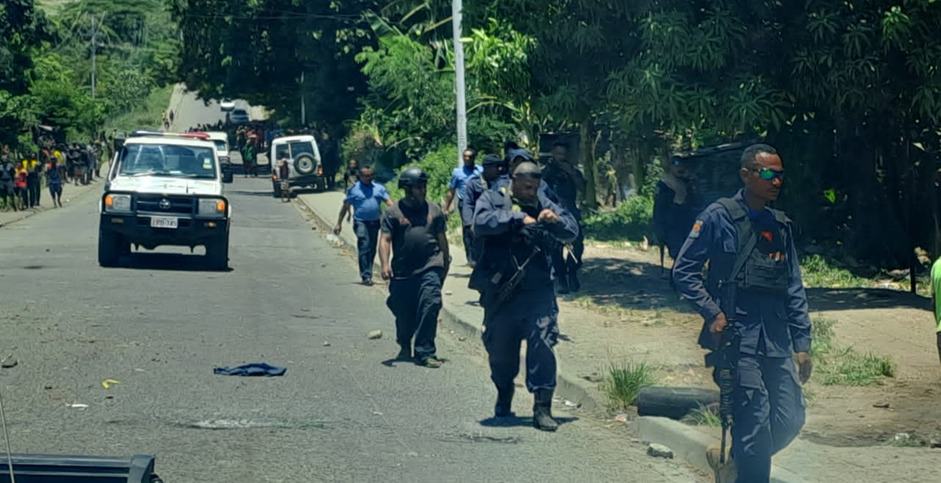Papua New Guinea police will be able to use lethal force to deal with crimes that come under Domestic Terrorism through the amendments to the Criminal Code Act.
Police Commissioner David Manning said this as the Constabulary continue to work for stronger law enforcement powers to fight against domestic terrorists causing havoc in some parts of the country such as Bosavi.
Commissioner Manning said that the kidnappings and held for ransom is part of ‘domestic terrorism’.
“The amendments establish clear legal process for the escalated use of up to lethal force, powers of search and seizure, and detention, for acts of domestic terrorism.
“It is high time that we call these criminals as domestic terrorists, because that is what they are and we need harsher measures to bring them to justice one way or another,” he said.
“Domestic terrorism includes the deliberate use of violence against people and communities to murder, injure and intimidate, including kidnapping and ransoms, and the destruction of properties.
“An accurate definition of domestic terrorism also includes hate crimes including tribal fight and sorcery and related violence.”
A new crime trend has emerged from the criminal underworld with kidnappings and held for ransom occurring over the last six years with over six kidnappings and ransom demands occurring since 2014.
However, it took the kidnapping of the Australian Professor and the demand for ransom this year to bring to light several years of continued kidnappings and demand for ransoms on expatriates and locals working at logging camps and several other organisations in Western province and the Highlands region.
Localised kidnappings have also continued with successful returns of victims particularly children.
Other domestic terrorism crimes also include:
– Organised crimes;
– Weapons smuggling;
– Illegal drug production and distribution;
– People trafficking.
The RPNGC, through the Minister for Internal Security, is putting forward amendments to the Criminal Code Act that will strengthen police capacity to search, investigate, intercept and prosecute people and groups involved in domestic terrorism,” he said.
Commissioner Manning said the way criminals operate has changed particularly in the use of information and communications technologies, and police powers need to be strengthened.
“The amendments will enable more effective lawful communications interception of channels and electronic devices used by domestic terrorists.
“Many of our laws do not take sufficient account of the way criminals, including domestic terrorists, use the internet and phone systems in carrying out violent crimes, and this is a key area for reform.”
Commissioner Manning said the new amendments will build on previous related legislation, and go even further to tip the balance of justice and public safety away from the criminals.
“Amendments have been made to the Criminal Code, such as in 2022 by the Government to strengthen laws against so-called glassman or glassmeri and the vile crimes they commit especially against women, children and the elderly.
“The amendments will further improve law and order co-operation and collaboration with international partners through training, equipment, technical advice and the use of new technologies and resources.
“Having interoperability with domestic and international partners requires the proper and recognised definition of a domestic terrorist and acts of domestic terrorism, as will be clear in the amendments.”
According to information put together by the Post-Courier since 2014 there have been a string of kidnappings that have occurred with a report of K300,000 (US$84,000) paid for the return of six expatriates held by armed men allegedly from the Southern Highlands. The latest kidnapping saw 17 girls two of whom were married taken by armed men in the Bosavi LLG also in Southern Highlands they were later released with about K3,000 (US$842) paid and several pigs offered to the kidnappers.
